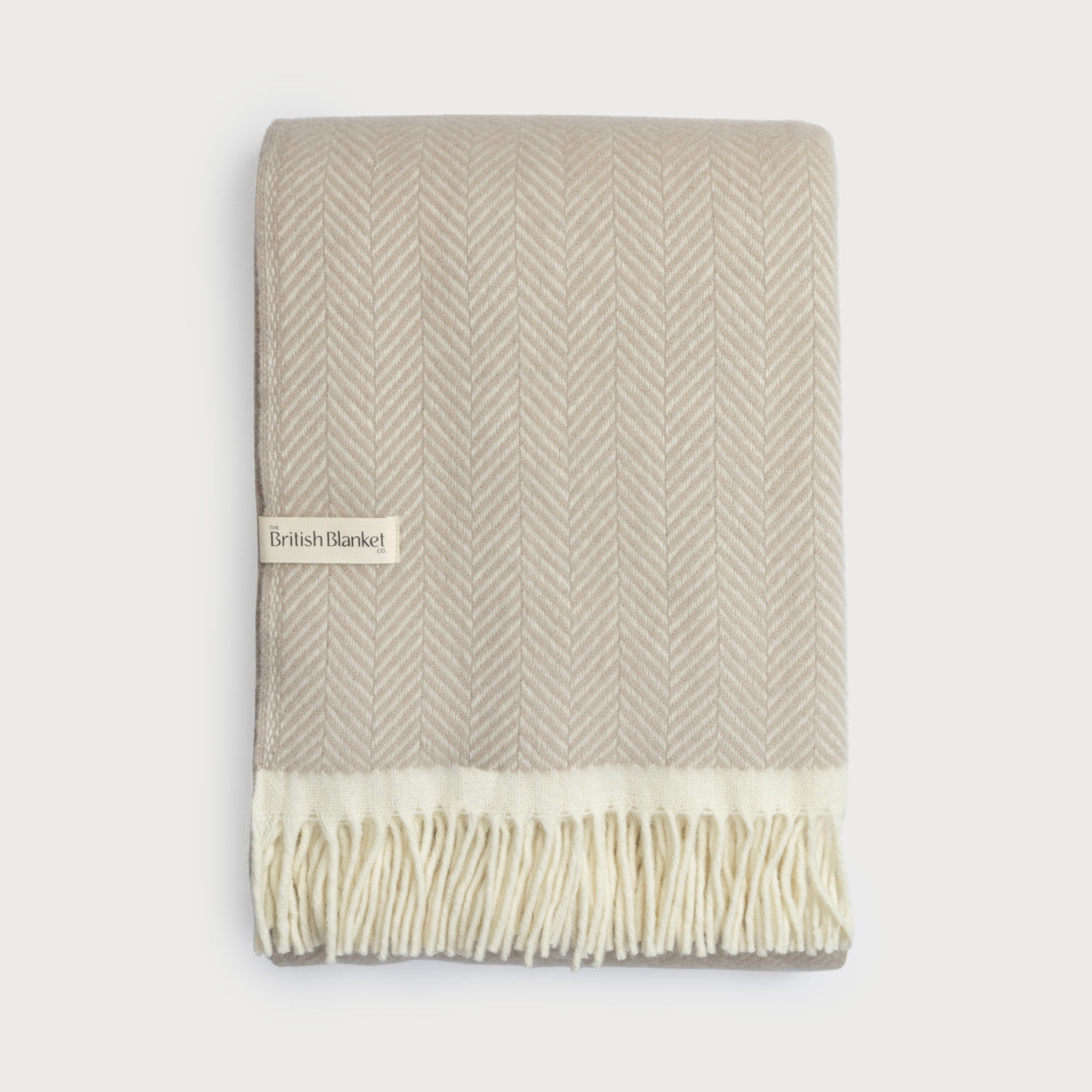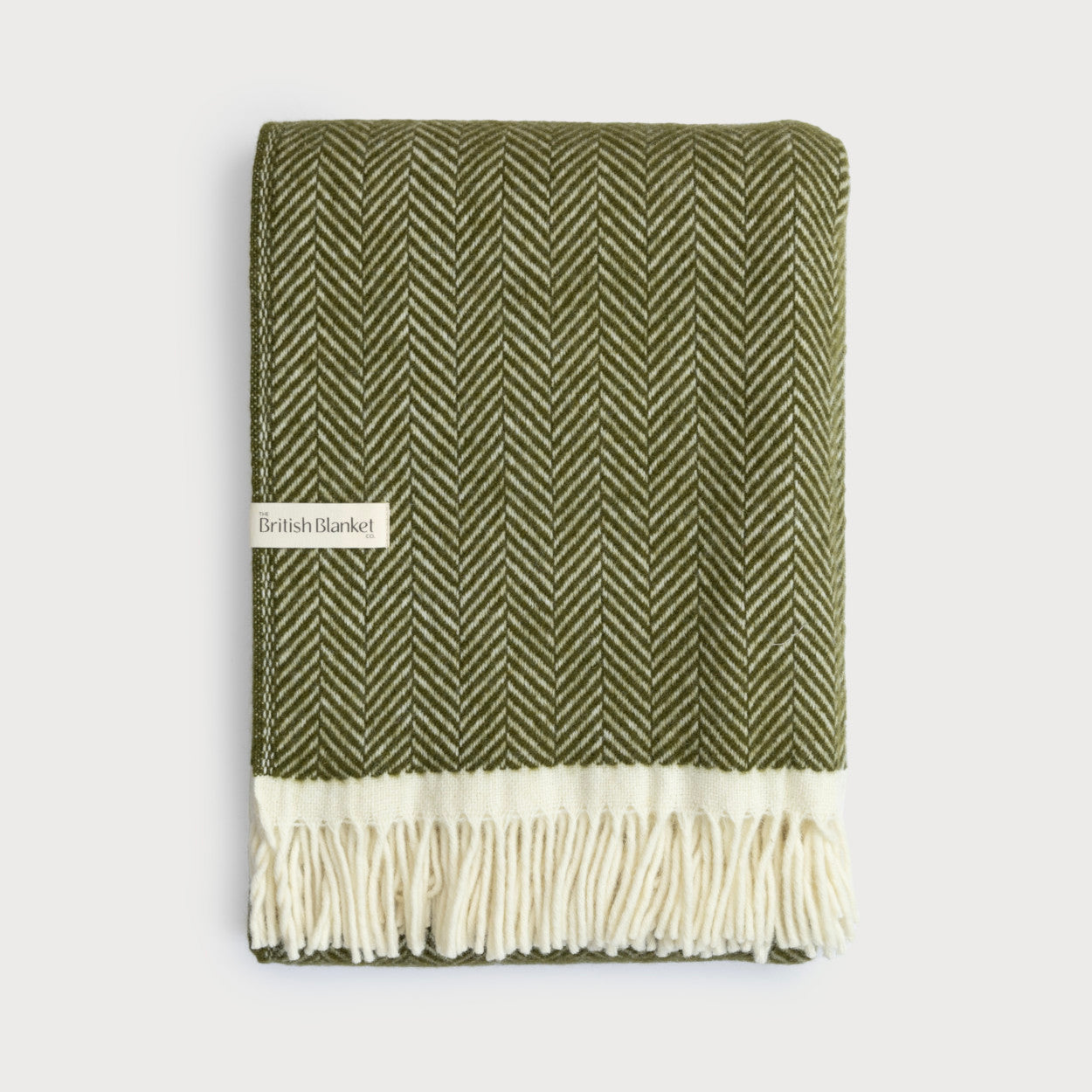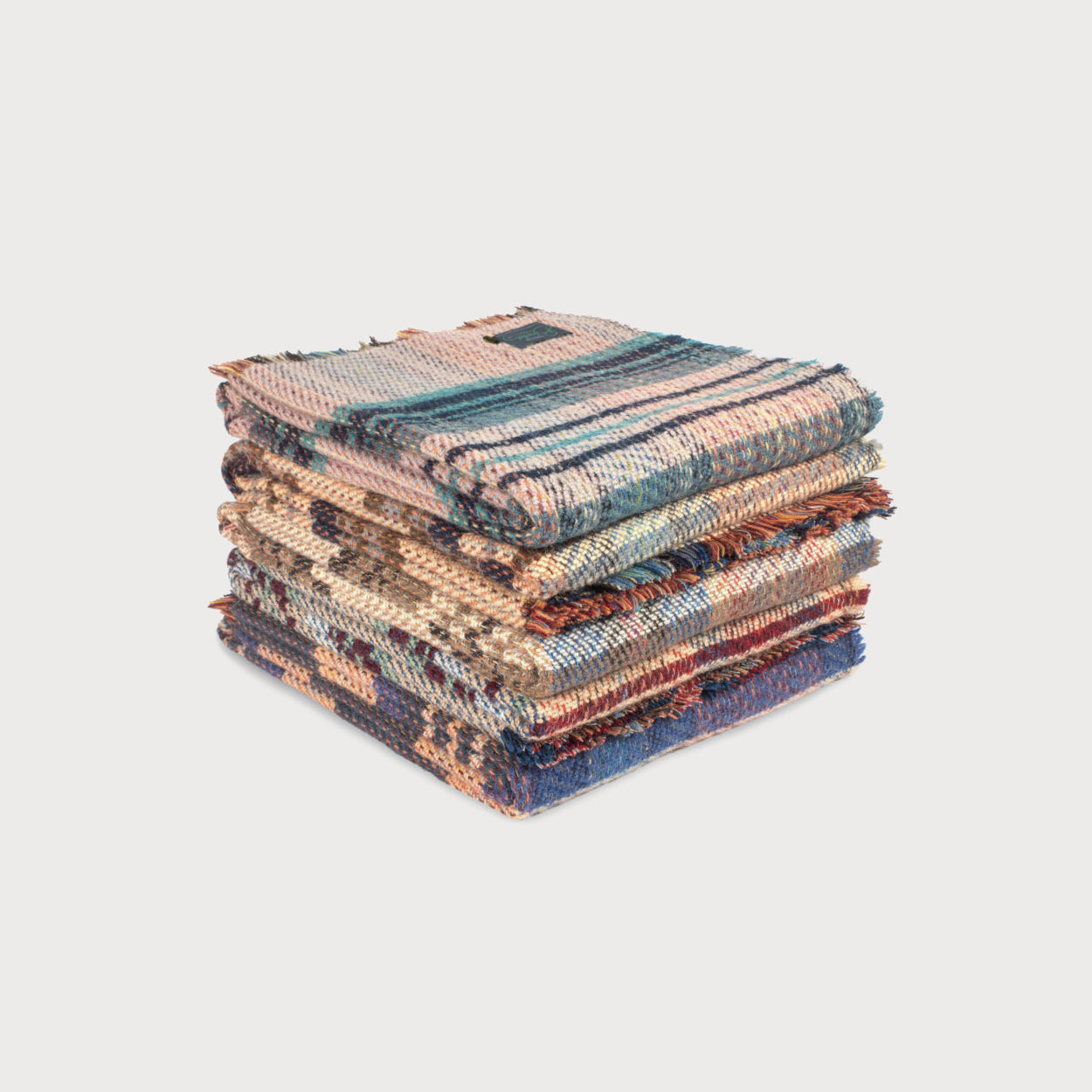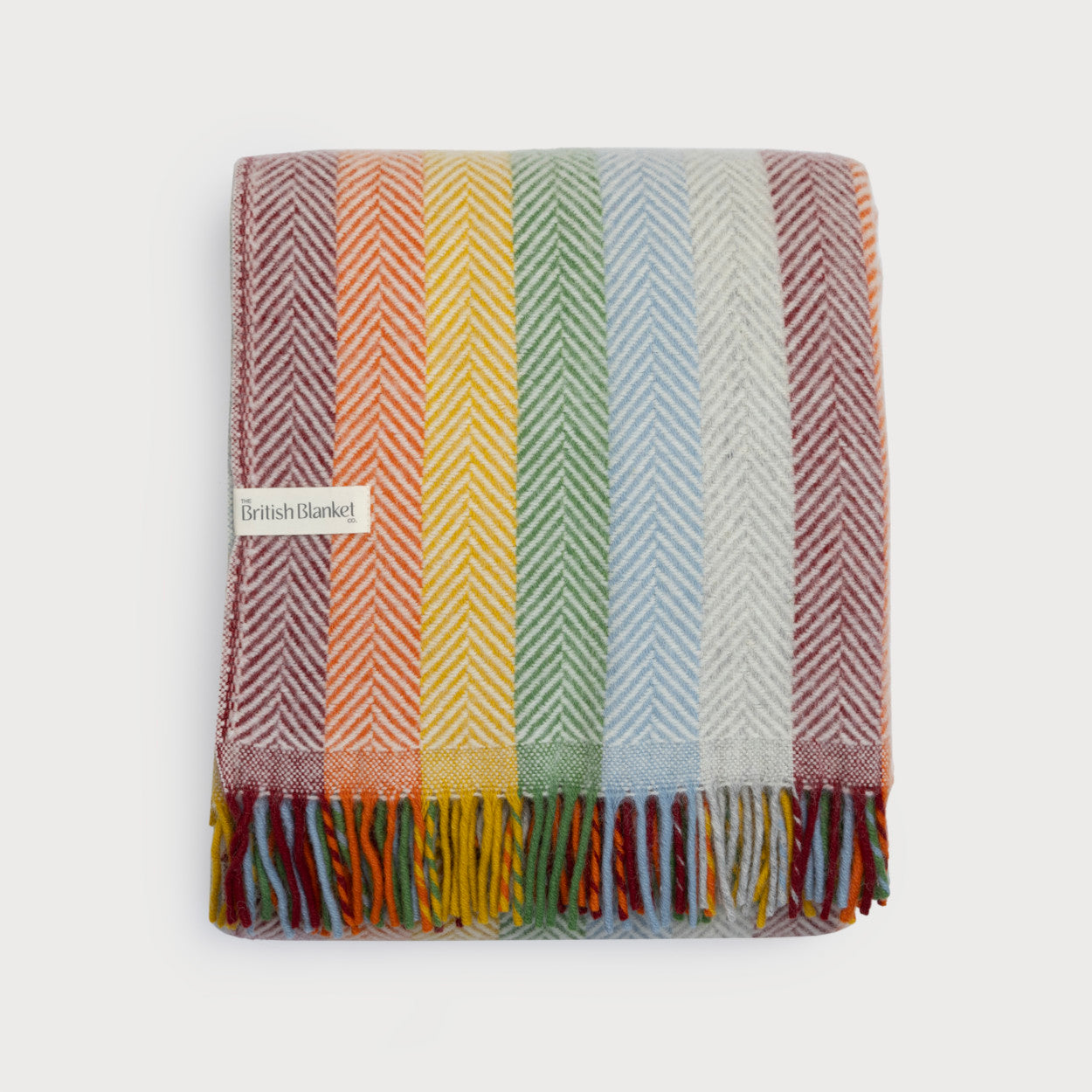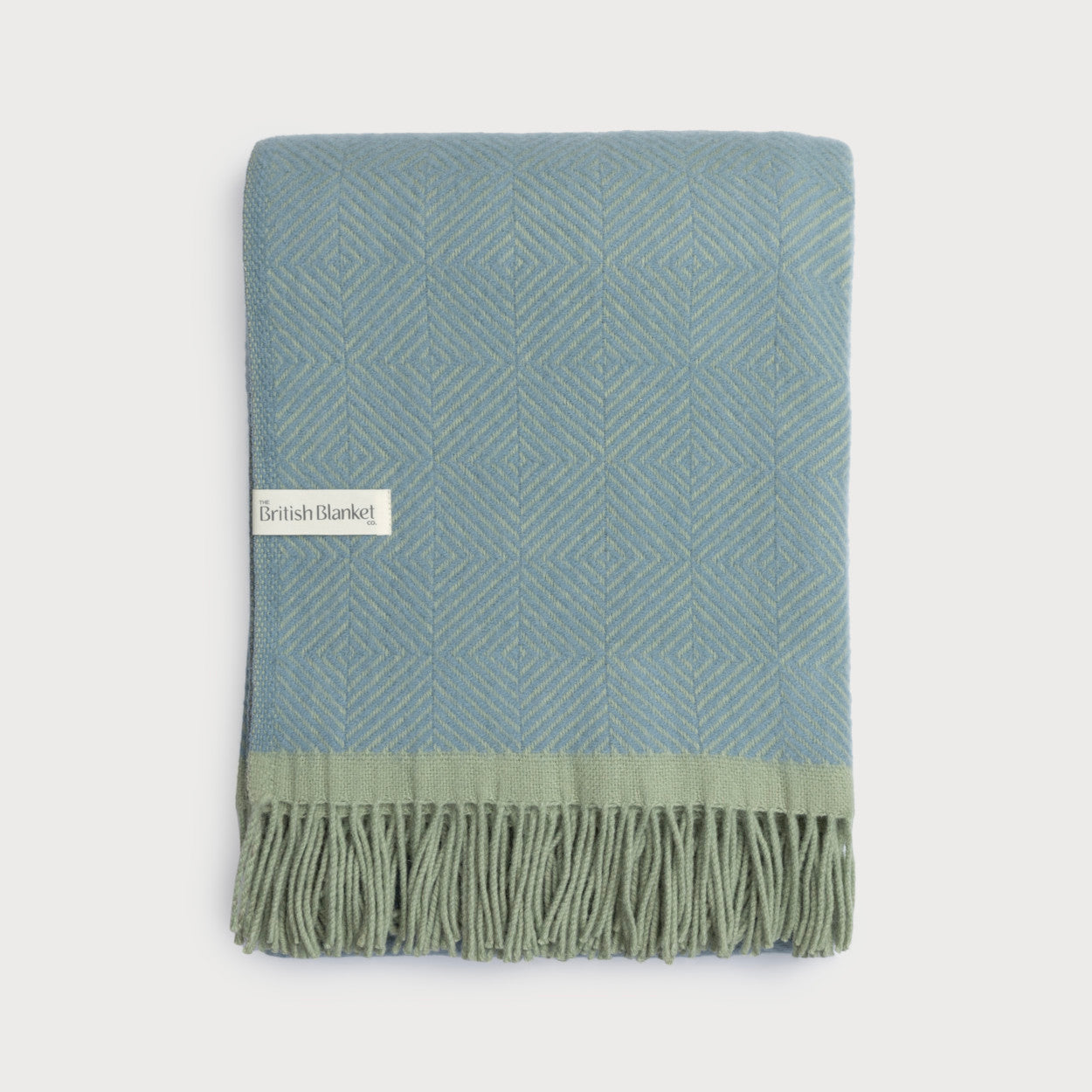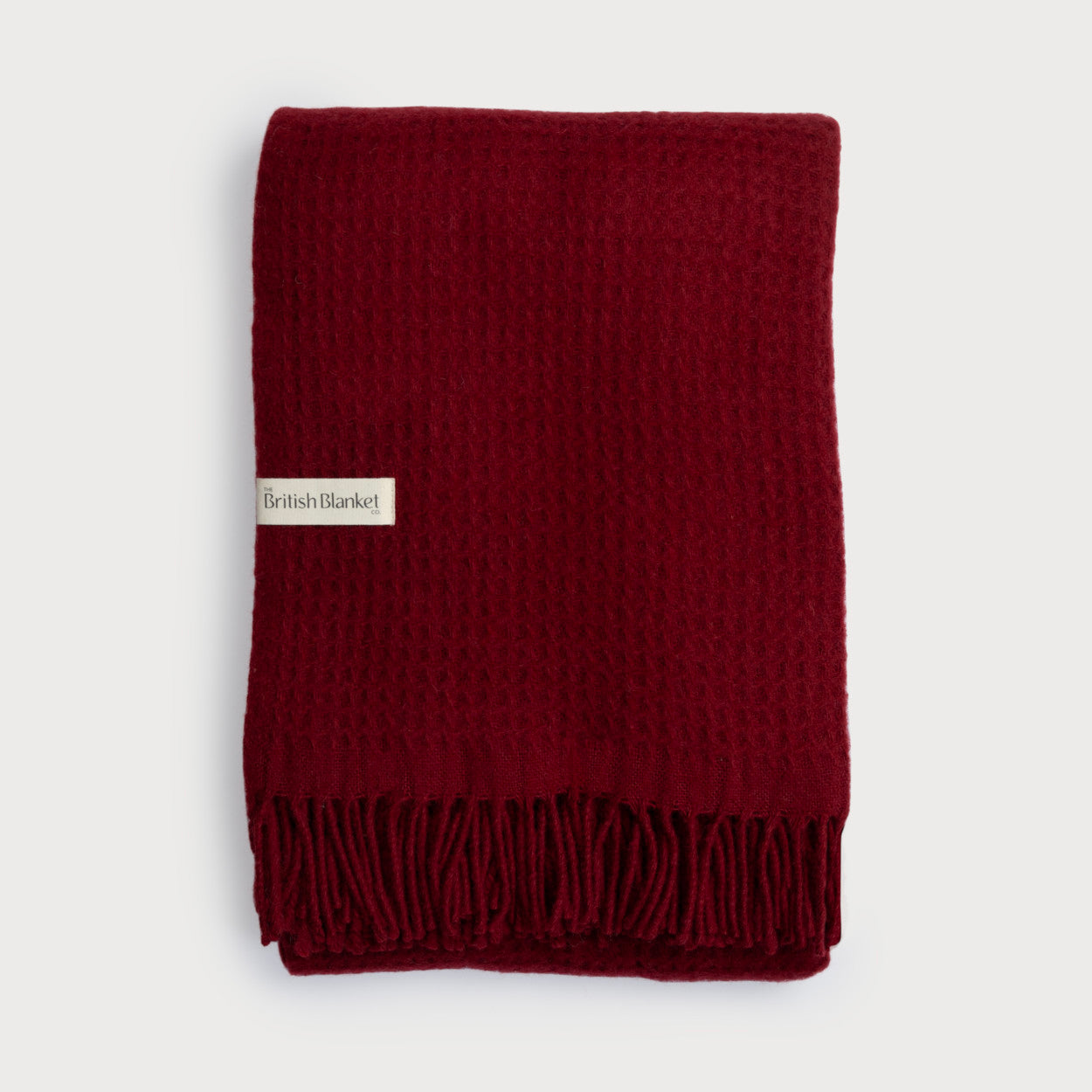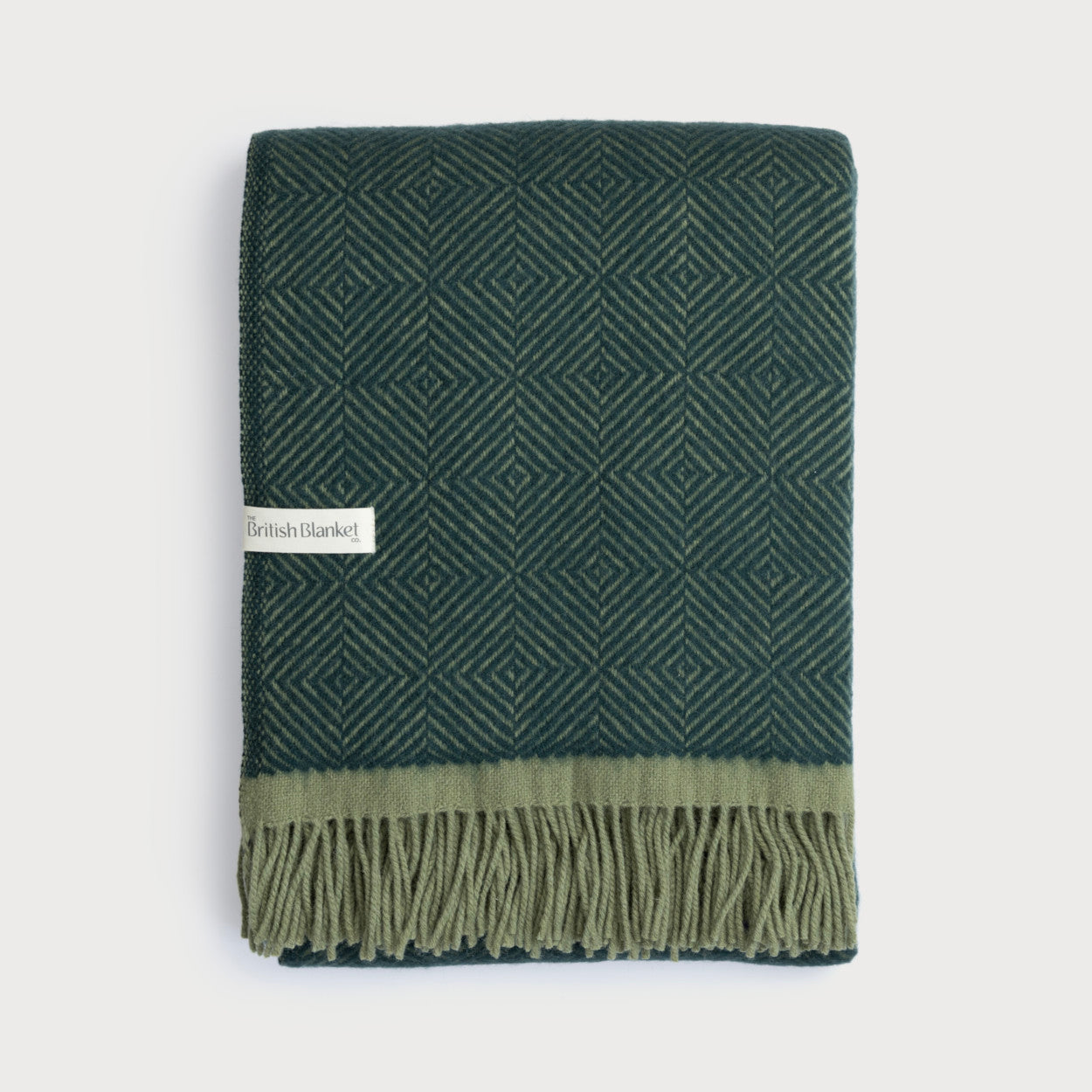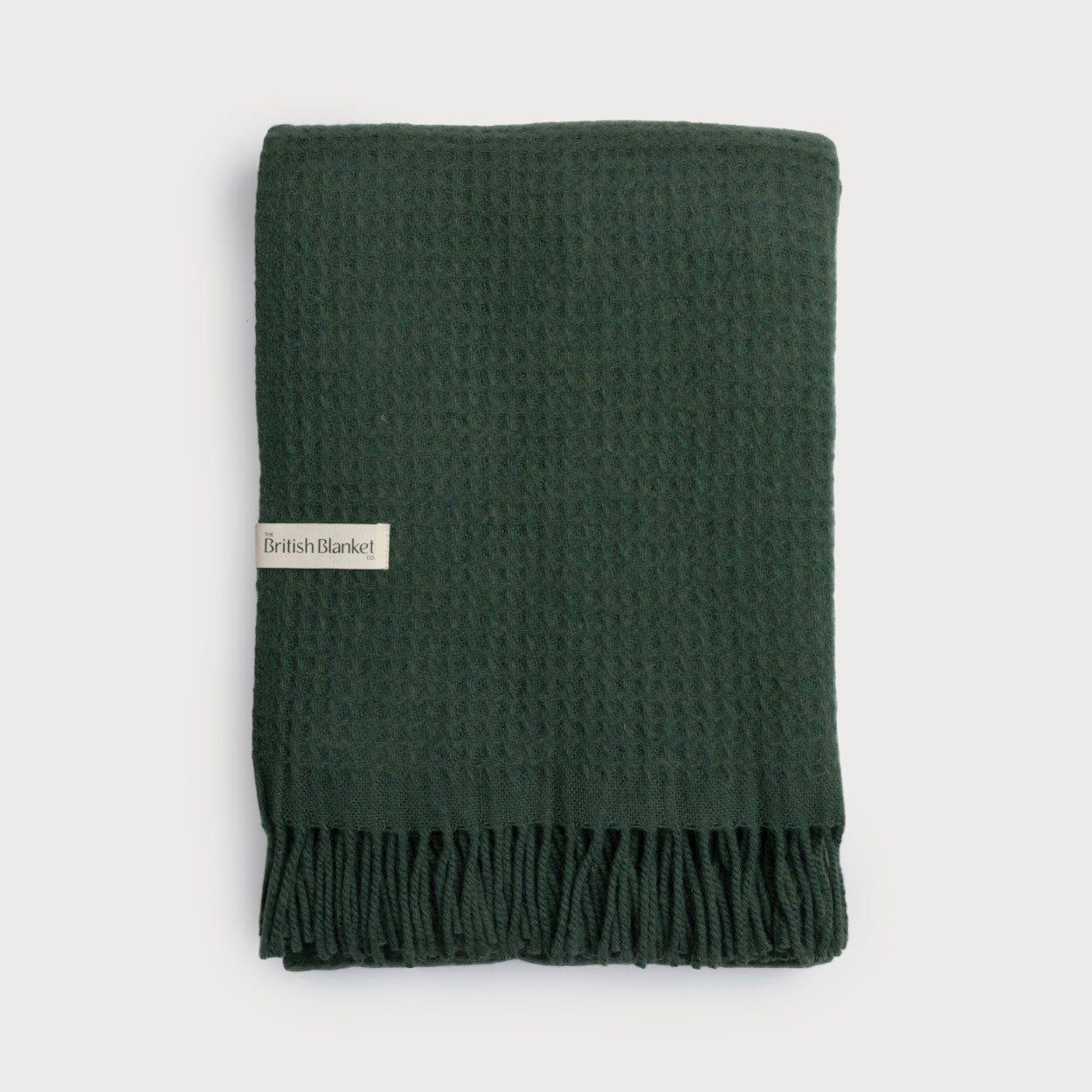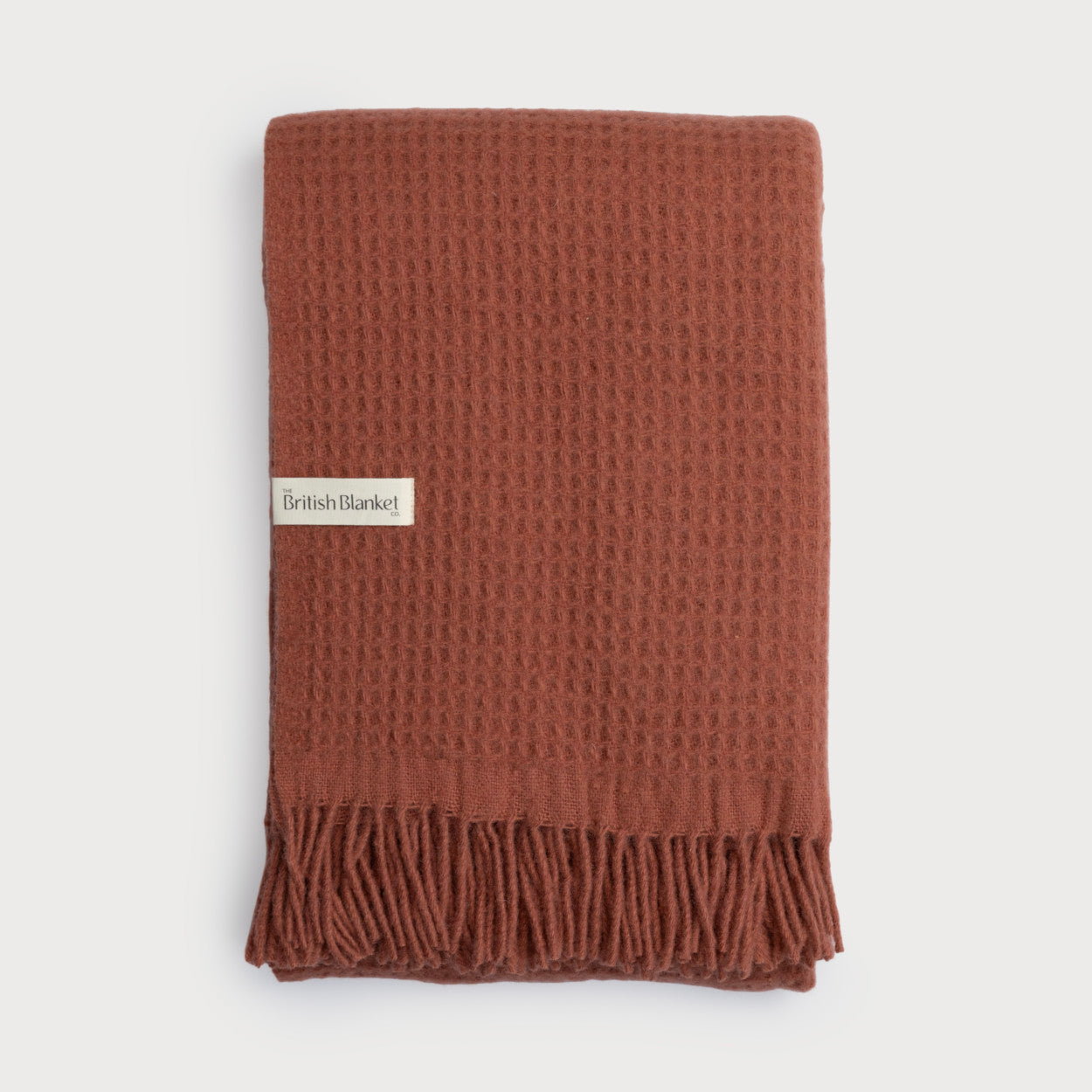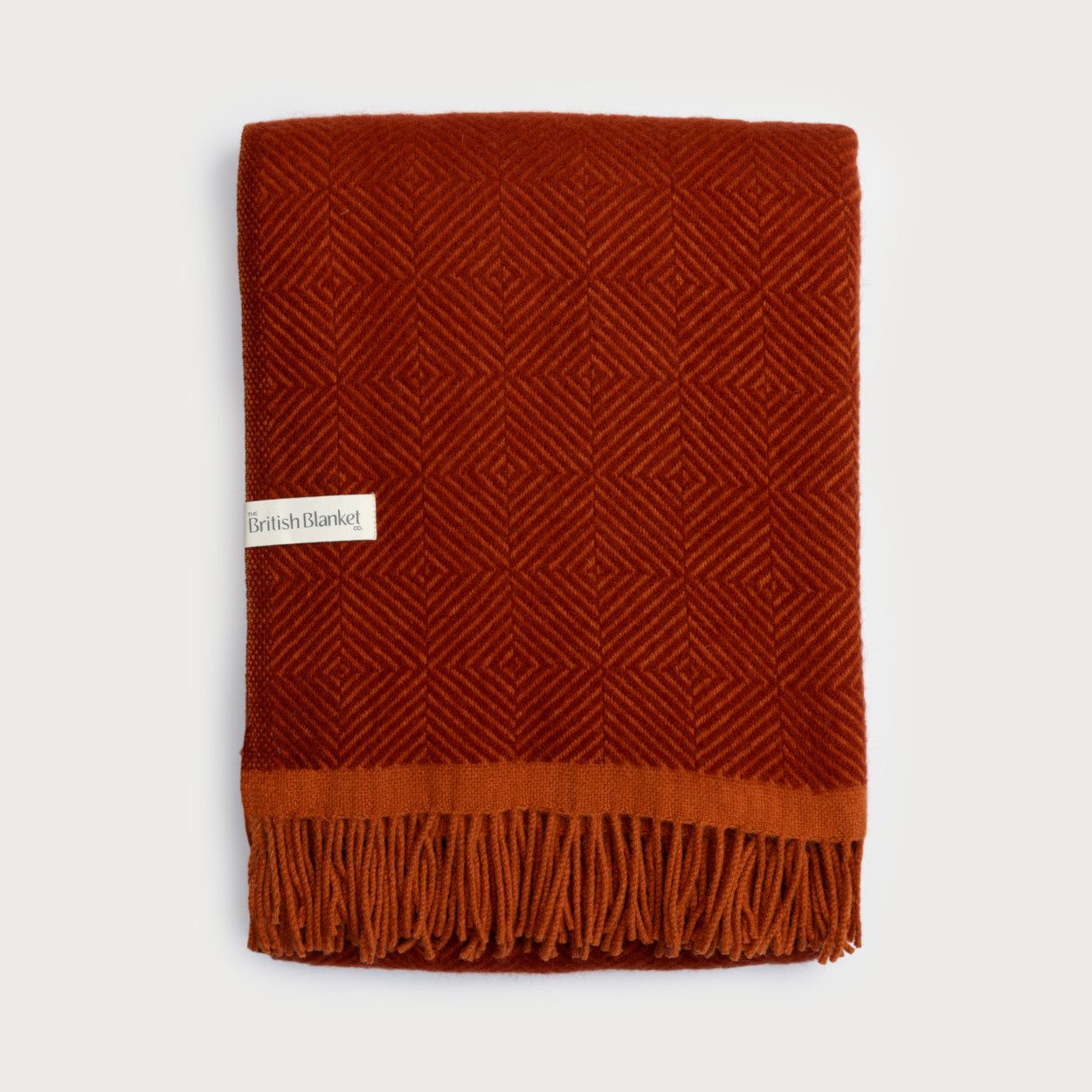 At The British Blanket Company, we are often asked about the characteristics of wool blankets - particularly about the difference between wool and cotton blankets. Which is warmer, softer or more washable, and so on...
At The British Blanket Company, we are often asked about the characteristics of wool blankets - particularly about the difference between wool and cotton blankets. Which is warmer, softer or more washable, and so on...
Naturally, when it comes to talking about blankets, we are always happy to oblige! As with most things, when comparing wool vs cotton blankets, both have their own unique advantages.
Here is our guide to wool blankets, answering some of the most common questions we come across.
Are wool blankets warm?
Wool is a great natural insulator, meaning it traps heat between its fibres. This serves the dual purpose of being warming in cold weather, but also cool in hot weather. Wool fibres also have wicking properties, so it pulls moisture away from your body, stopping you feeling sweaty or clammy. It is a great choice for keeping cosy, without overheating.
Are wool blankets itchy?
Not all wool is created equal. The term wool refers to more than just one type of fibre. From alpaca to goat’s wool or merino lambswool, there is a world of difference between the qualities of the various kinds. This will affect the softness, weight and flexibility of the finished product, as well as having an effect on the price. Cheaper, coarser wool fibres can be scratchy and rough, so it’s important to look for quality. At The British Blanket Company, all of our wool blankets are made in British Mills that select only the finest, softest wool to weave, meaning you can count on them for quality.

Photo by Les Triconautes
Are wool blankets soft?
Once again, the softness of any blanket will rely on the quality of the fabric it is made from. Our softest blankets are our Finest Collection, all made from 100% merino lambswool. Merino is a breed of sheep that produces especially long, fine and crimped wool fibres. Lambswool is taken from the sheep’s first shearing at around seven months old. The result is a luxuriously soft blanket.
Are wool blankets heavy?
Merino wool fibres are incredibly fine and delicate, making the finished product even lighter than cotton. The unique natural crimping of the fibre traps warmth and improves insulation, so the blanket is still very warm despite its light feel. Regular wool has coarser fibres, so the blanket will have a thicker, chunkier feel.
Are wool blankets washable?
Wool blankets don't demand a huge amount of care and attention to keep them in good condition.
Since wool is breathable and naturally odour repellent, it needs less regular washing than other fabrics, which is in turn better for the environment. Airing your blanket regularly can help keep it fresher for longer. Take a look at our wool care guide for some useful tips and advice about looking after your blankets and throws.

Our Recycled Cotton Blankets are another sustainable option to spruce up your living space.
What is the difference between wool and cotton?
Durability – Wool is a strong, flexible fabric, which gives it greater durability. Its elasticity means it maintains its shape and structure for longer. Recycled cotton is also durable, making our recycled cotton blankets a sustainable option with a long lifespan when cared for properly.
Environment - Both wool and recycled cotton are environmentally friendly materials, each with benefits. Wool is naturally renewable and biodegradable, while recycled cotton reduces the environmental impact associated with virgin cotton production, which typically demands high water use. Choosing recycled cotton over virgin cotton helps conserve resources and supports waste reduction.
Safety – Wool is one of the most fire-resistant fibres due to its high moisture and nitrogen content, making it less likely to ignite than other materials. While both wool and cotton are free from toxic emissions when they burn, wool’s flame-retardant nature gives it a slight edge in safety.
Cost – We are often asked: is wool more expensive than cotton? Virgin Cotton tends to be a cheaper fabric, especially compared to high quality wool or even recycled cotton. With the added benefits of wool and recycled cotton, either blanket is good value and a great investment.

The Campaign for Wool - Wool Week in 2020
It’s clear that we are big fans of wool blankets.
We're proud supporters of The Campaign for Wool, a global initiative to raise awareness about the unique, natural, renewable and biodegradable benefits offered by wool. Find out more about the campaign, and the annual Wool Week festival from 5th -18th Oct. This year sees many exciting events taking place online, so you can take part in the worldwide Campaign for Wool from the comfort of your own home (ideally whilst wrapped up in a warm wool blanket). We'll be joining in on social media so be sure to follow us.



